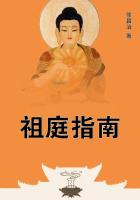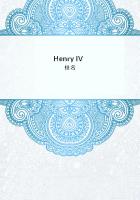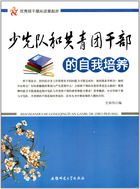A mind without words would make only such feeble and uncertain progress as a traveller set down in the midst of a wilderness where there were no paths or conveyances and without even a compass.A mind with them is like the same traveller in the midst of civilization, with beaten roads and rapid vehicles ready to take him in any direction where men have been before.As the traveller must pass over the ground in either case, so the mind must pass through experience, but if it has language it finds its experience foreseen, mapped out and interpreted by all the wisdom of the past, so that it has not only its own experience but that of the race梛ust as the modern traveller sees not only the original country but the cities and plantations of men.
The principle that applies to words applies also to all structures that are built of words, to literature and the manifold traditions that it conveys.
As the lines of Dante are "foot-paths for the thought of Italy," so the successful efforts of the mind in every field are preserved in their symbols and become foot-paths by which other minds reach the same point.And this includes feeling as well as definite idea.It is almost the most wonderful thing about language that by something intangible in its order and movement and in the selection and collocation of words, it can transmit the very soul of a man, making his page live when his definite ideas have ceased to have value.In this way one gets from Sir Thomas Browne, let us say, not his conceits and credulities, but his high and religious spirit, hovering, as it were, over the page.
The achievement of speech is commonly and properly regarded as the distinctive trait of man, as the gate by which he emerged from his pre-human state.
It means that, like Helen Keller, he has learned that everything has, or may have, a name, and so has entered upon a life of conscious fellowship in thought.It not only permitted the rise of a more rational and human kind of thinking and feeling, but was also the basis of the earliest definite institutions A wider and fuller unity of thought took place in every group where it appeared.Ideas regarding the chief interests of primitive life梙unting, warfare, marriage' feasting and the like梬ere defined, communicated and extended.Public opinion no doubt began to arise within the tribe, and crystallized into current sayings which served as rules of thought and conduct; the festal chants, if they existed before, became articulate and historical.And when any thought of special value was achieved in the group, it did not perish, but was handed on by tradition and made the basis of new gains.In this way primitive wisdom and rule were perpetuated, enlarged and improved until, in connection with ceremonial and other symbols, they became such institutions, of government, marriage, religion and property as are found in every savage tribe.
Nor must we forget that this state of things reacted upon the natural capacities of man, perhaps by the direct inheritance of acquired social habits and aptitudes, certainly by the survival of those who, having these, were more fitted than others to thrive in a social life.In this way man, if he was human when speech began to be used, rapidly became more so, and went on accumulating a social heritage.
So the study of speech reveals a truth which we may also reach in many other ways, namely, that the growth of the individual mind is not a separate growth, but rather a differentiation within the general mind.Our personal life, so far as we can make out, has its sources partly in congenital tendency, and partly in the stream of communication, both of which flow from the corporate life of the race.The individual has no better ground for thinking of himself as separate from humanity than he has for thinking of the self he is to-day as separate from the self he was yesterday; the continuity being no more certain in the one case than in the other.If it be said that he is separate because he feels separate, it may be answered that to the infant each moment is separate, and that we know our personal life to be a whole only through the growth of thought and memory.In the same way the sense of a larger or social wholeness is perhaps merely a question of our growing into more vivid and intelligent consciousness of a unity which is already clear enough to reflective observation.
It is the social function of writing, by giving ideas a lasting record, to make possible a more certain, continuous and diversified growth of the human mind.It does for the race very much what it does for the individual.
When the student has a good thought he writes it down, so that it may be recalled at will and made the starting point for a better thought in the same direction; and so mankind at large records and cherishes its insights.
Until writing is achieved the accumulation of ideas depends upon oral tradition, the capacity of which is measured by the interest and memory of the people who transmit it.It must, therefore, confine itself chiefly to ideas and sentiments for which there is a somewhat general and constant demand, such as popular stories條ike the Homerian legends梒hants, proverbs, maxims and the like.It is true that tradition becomes more or less specialized in families and castes梐s we see, for instance, in the wide spread existence of a hereditary priesthood梑ut this specialization cannot be very elaborate or very secure in its continuance.There can hardly be, without writing, any science or any diversified literature.These require a means by which important ideas can he passed on unimpaired to men distant in time and space from their authors.We may safely pronounce, with Gibbon, that ''without some species of writing no people has ever preserved the faithful annals of their history, ever made any considerable progress in the abstract sciences, or ever possessed, in any tolerable degree of perfection, the useful and agreeable arts of life."















